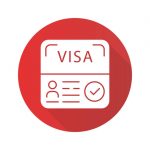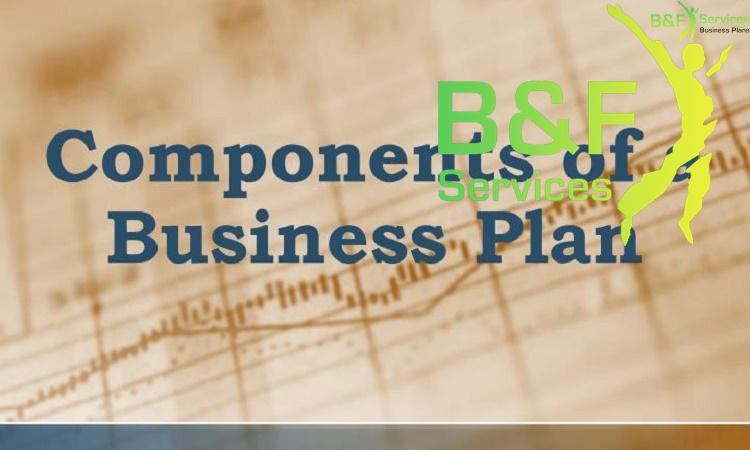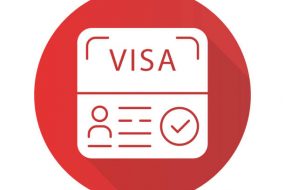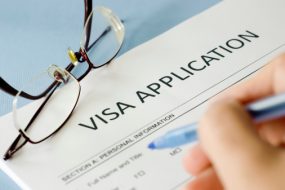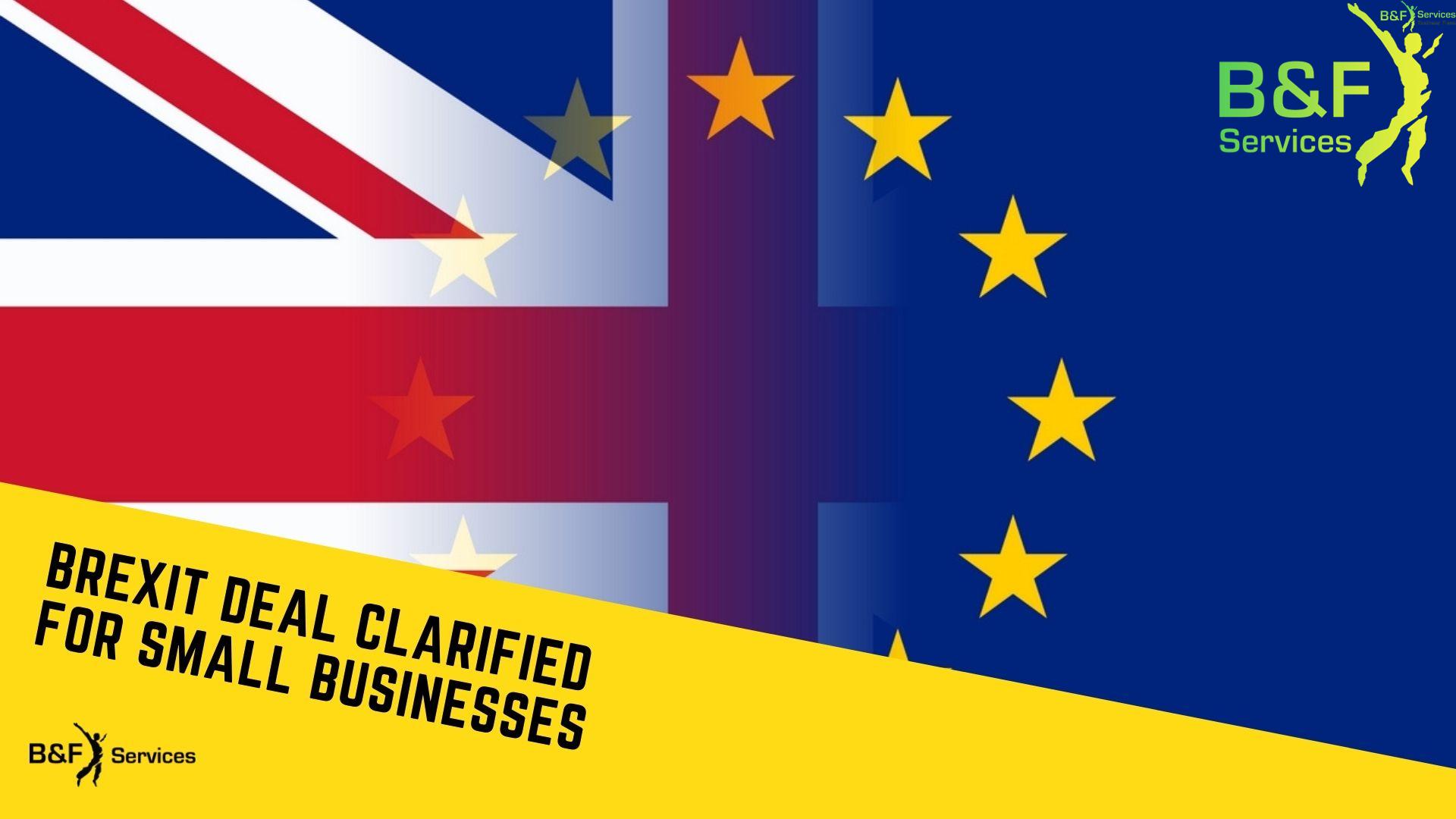

Almost 4 and half years after the referendum result, the UK and the EU finally concluded a trade deal on 24 December and small business owners are relieved that the Brexit deal has finally been agreed, as it means certainty going forward. A 1,246-page legal text of the Trade and Cooperation Agreement deal has been released and there is a lot to take in but here the main points that impact on small businesses.
Tariffs on exporting and importing goods
One of the big headlines in the Brexit deal is the agreement that there will no tariffs imposed on qualifying goods. To be free of tariffs, goods being exported from the UK to the EU and vice versa must comply with rules of origin which is how customs authorities classify where an export has come from. Let’s dig a little deeper into what does the agreement mean in practice for online and multichannel retailers:
Selling to the EU
EORI numbers
Exporters from Great Britain to the EU will need an EORI number starting with the letters GB from January 1 – already previously needed to export to non-EU countries – to show they are a recognised trader. This, says Government guidance, is to help avoid increased costs and delays as their goods move through customs.
A further EORI number starting with XI will also be needed to move goods between Northern Ireland and non-EU countries or to make a declaration or get a customs decision in Northern Ireland. Only traders who have an EORI number starting in GB can get one of those.
Retailers shipping from Northern Ireland will only need an EORI number if they are exporting outside the EU.
The UK government’s own information says the GB EORI number can take about a week to come through. Here’s the link to get it.
VAT
From January 1 most goods being exported to the EU will attract a 0% UK VAT rate. Here’s the page to look at to check the exceptions.
Instead, traders will have to pay import VAT when goods arrive at the destination country. VAT is dealt with by member states so retailers sending goods to customers in the EU will need to be aware of the different rules in each member state about whether import VAT will be liable at the border or whether the accounting of it can be deferred to the importer’s quarterly return.
The EU has, as a result of Covid-19, delayed introducing a scheme that will require platforms to collect and account for VAT on behalf of sellers until July 1 – although, as detailed below – it comes into operation for those sending from the EU to UK from January 1.
Rules of origin
The free-trade deal struck between the UK and EU applies to goods mostly originating from the UK and EU. Where goods aren’t mostly from the UK or EU they are not covered under the deal so tariffs would be payable.
So what counts? Government detailed guidance on the agreement struck says that goods must be either ‘wholly obtained’ from the UK or EU – so, entirely made in the UK from materials produced in the UK – or ‘substantially transformed’ in the UK or EU – in such a way that value is added through the production basis, the goods change tariff classification as a result, or that goods are made from specific products using specific processes covered in detail in the agreement.
The government guidance on understanding rules of origin is available here. It suggests that, in practice, customs intermediaries will help businesses comply with their obligations.
There is some leeway for that since up till the end of June, traders importing from the EU to the UK will have six months to submit a full customs declaration – including declaring proof of origin – and pay any tariffs that are necessary. Additionally, traders will not need to have declarations from their suppliers in place at the time goods are exported until December 31 2021.
Customs declarations
Most UK online retailers selling to EU customers from this country do so by sending orders in individual parcels to the customer, either via the postal service or via a courier. The UK and EU have negotiated a tariff-free deal, so there will be no tariffs charged on exports to the EU. But, everyone in England, Scotland or Wales sending parcels to the EU whose contents are worth up to £270 will have to fill in a CN22 customs declaration form (guidance here). Those sending items worth £270 or more have to fill in a longer CN23 customs declaration. Neither are required for retailers in Northern Ireland sending a parcel to the EU.
The Post Office says that about 45% of the total international parcel traffic sent through Post Offices in Great Britain currently goes to EU destinations. Customs forms, available within branches, should be used for any parcels sent from now on, in order to be sure parcels have the correct documentation if they arrive on or after January 1.
Amanda Jones, Post Office retail and franchise network director, says: “Postmasters are on hand to provide practical advice, particularly to small businesses, who regularly send parcels to the EU. Customers should also look out for a leaflet in branches that has information about the new customs declaration requirement.”
Couriers handling parcels will handle these formalities on behalf of retailers and brands, but they will need the new information required for the customs declaration in order to complete the task. DPD’s transitional Brexit Guide, for example, covers the seven new pieces of information they will need – from commodity codes and product descriptions through to EORI numbers and country of origin.
Logistics and delivery
Those who are not sending individual parcels via post or via a courier – for example, shipping a wholesale order to an EU retailer or transferring goods to their own EU operations – will need to follow a different process, and most businesses will use a courier, freight forwarder or customs agent to make the declaration and get goods through UK customs. Here’s the government step-by-step guidance for those exporting to the EU but not using the post.
Those sending animal products will need to clear the EU’s Sanitary and Phytosanitary (SPS) Measures, as set out in paragraph 1.2.3. in this document on the UK/EU border. The UK/EU trade agreement allows for further harmonisation of these measures in the future.
Logistics UK says that the EU/UK deal appears to head off threats to the supply chain, since it allows goods to be shipped both by sea and by air. But retailers and brands will be making customs declarations for the first time in 40 years – while also potentially dealing with SPS requirements – and that’s likely to mean delays. Logistics UK has written to the government to ask for new arrangements to be put in place for lorry drivers who may have to wait to clear customs from January 1. That, it says, is necessary to prevent a repeat of what it terms the “national embarrassment” that saw gridlocked lorry drivers spend Christmas in their cabs with few toilet or hot food facilities available while the French border was temporarily closed as a Covid-19 safeguard.
“With new customs procedures in place from 1 January 2021, it is vital that all the systems needed to support hauliers as they move across our borders are in place and in full working order,” says Logistics UK policy director Elizabeth de Jong. “From 1 January, the industry will need regular, nationwide real-time information feeds from the government on the status of all ports, combined with early insight where traffic building – this will highlight where problems are likely to occur and help delays to be mitigated.”
Data
Online and multichannel retailers have built up large EU customer databases in recent decades and there have been questions about whether they will be able to hold onto those databases in the future. The final provisions section of the EU/UK agreement allows fo existing arrangements to continue at least for the next six months.
Free flow of personal data from the EU, EEA and EFTA states can continue “until adequacy decisions are adopted, and for no longer than six months”, the Government’s explainer of the treaty says. It also adds that “The UK has, on a transitional basis, deemed the EU and EEA EFTA States to be adequate to allow for data flows from the UK.
Buying from the EU
EORI numbers
Retailers selling from the EU to the UK will need to have an EORI number, as assigned by the member state in which they operate. Here’s a link to the EU information on this.
VAT
VAT is liable to be paid on imports from the EU. The UK government has agreed that UK end customers will not have to pay import VAT, but retailers selling to the UK will have to set up an account with HMRC – the UK tax authority – to pay that VAT. There’s Government information here on how to deal with UK VAT. UK companies will have to account for goods that they import and that are worth more than £135 via their quarterly VAT return. Some of the big platforms, such as Amazon and eBay, will be liable to collect any VAT due from their sellers from January 1 and send it to HMRC.
Amazon has written to sellers, in the run up to January 1, to say it will calculate and collect UK VAT from sellers that are not based in the UK but have stored stock in the UK or that are delivering parcels worth up to £135 from stock stored outside the UK. VAT will then be deducted from the seller’s total earnings.
Amazon also reminds customers at the same time that the VAT tax exemption for sales of goods worth less than £15 delivered from outside the UK will be removed from January 1. This is a UK action rather than part of the EU deal.
Rules of origin
As stated above, the free-trade deal struck between the UK and EU applies to goods mostly originating from the UK and EU. Where goods are made using raw materials or components from other countries not covered by the deal, additional tariffs may become payable.
Government guidance on understanding rules of origin as agreed in the UK/EU treaty is available here. It suggests that customs intermediaries will help businesses comply with their obligations. The leeway for those importing goods from the EU to the UK is that traders will not need to have declarations from their suppliers in place at the time goods are exported until December 31 2021.
See above for rules on data.
Business travel and selling services in the EU
The end of freedom of movement means unlimited businesses trips to the EU are no longer possible and UK businesses lose the automatic right to offer services across the EU. The deal allows for short term business trips totalling 90 days in any 180 days without a visa or work permit. Activities permitted include meetings, attending conferences and market research. The full list of permitted activity when on a short-term business trip to the EU is outlined here (for anything not on this list, you might need a work visa):
The activities Short-term business visitors are permitted to engage in are:
a) meetings and consultations: natural persons attending meetings or conferences, or engaged in consultations with business associates;
b) research and design: technical, scientific and statistical researchers conducting independent research or research for a legal person of the Party of which the Short-term business visitor is a natural person;
c) marketing research: market researchers and analysts conducting research or analysis for a legal person of the Party of which the Short-term business visitor is a natural person;
d) training seminars: personnel of an enterprise who enter the territory being visited by the Short-term business visitor to receive training in techniques and work practices which are utilised by companies or organisations in the territory being visited by the Short-term business visitor, provided that the training received is confined to observation, familiarisation and classroom instruction only;
e) trade fairs and exhibitions: personnel attending a trade fair for the purpose of promoting their company or its products or services;
f) sales: representatives of a supplier of services or goods taking orders or negotiating the sale of services or goods or entering into agreements to sell services or goods for that supplier, but not delivering goods or supplying services themselves. Short-term business visitors shall not engage in making direct sales to the general public;
g) purchasing: buyers purchasing goods or services for an enterprise, or management and supervisory personnel, engaging in a commercial transaction carried out in the territory of the Party of which the Short-term business visitor is a natural person;
h) after-sales or after-lease service: installers, repair and maintenance personnel ands upervisors, possessing specialised knowledge essential to a seller’s contractual obligation, supplying services or training workers to supply services pursuant to a warranty or other service contract incidental to the sale or lease of commercial or industrial equipment or
machinery, including computer software, purchased or leased from a legal person of the Party of which the Short-term business visitor is a natural person throughout the duration of the warranty or service contract;
i) commercial transactions: management and supervisory personnel and financial services personnel (including insurers, bankers and investment brokers) engaging in a commercial transaction for a legal person of the Party of which the Short-term business visitor is a natural person;
j) tourism personnel: tour and travel agents, tour guides or tour operators attending or participating in conventions or accompanying a tour that has begun in the territory of the Party of which the Short-term business visitor is a natural person; and
k) translation and interpretation: translators or interpreters supplying services as employees of a legal person of the Party of which the Short-term business visitor is a natural person. For activities that involve selling services and goods, work permits and other requirements are likely to be needed from the appropriate country. Touring musicians, for example, are not covered by the 90-day visa-free rule. A petition calling for a free work permit that gives visa-free travel for touring bands, musicians, artists and TV and sports professionals has received more than 190,000 signatures.
In the many annexes in the Brexit deal document, several exceptions and restrictions for providing services are laid out. Analysis by the Institute for Government says: “UK nationals will not, for example, be able to sell actuarial services in Italy or construction services in Cyprus. They will not be able to be surveyors in Bulgaria or tobacconists in France.”
The agreement allows for mutual recognition of professional qualifications in the future but as a briefing paper by the House of Commons Library says: “From 1 January 2021, UK qualified workers wishing to work in the EU will have to meet the qualification requirements of each individual Member State. The same is true for EU workers seeking recognition of their qualifications in the UK.”
Business owners providing services in the EU/EEA should read the latest government guidance for the country they are visiting:
- Norway
- Italy
- Ireland
- Malta
- Switzerland
- Iceland
- Austria
- Hungary
- Germany
- Slovenia
- Romania
- Denmark
- Luxembourg
- France
- Finland
- Greece
- Estonia
- Sweden
- Spain
- Slovakia
- Portugal
- Cyprus
- Poland
- Croatia
- Lithuania
- Liechtenstein
- The Netherlands
- Belgium
- Bulgaria
- Latvia
- Czech Republic
EU funding schemes
British businesses have received billions of pounds of funding from the EU and the agreement allows for the UK’s continued participation in some schemes subject to the UK contributing to the EU budget.
Continued UK participation in the following programmes was agreed until 2027:
- Horizon Europe, the EU’s research and innovation programme
- Euratom Research and Training programme
- International Thermonuclear Experimental Reactor, the fusion test facility under construction in France
- Copernicus, EU satellite system for monitoring the Earth
The government’s latest guidance on EU funding is here and Horizon Europe details are here.
Sharing of personal data
The EU-UK Trade and Cooperation Agreement allows for the continued free trade of personal data from the EU/EEA to the UK for up to six months after the end of the transition period until adequacy decisions come into effect.
Government guidance says: “Personal data is any information that can be used to identify a living person, including names, delivery details, IP addresses, or HR data such as payroll details. Most organisations use personal data in their daily operations.
“An example of this is a UK company that receives customer information from an EU company, such as names and addresses, to provide goods or services.”
Although nothing changes for now, the government advises businesses to “work with EU/EEA organisations who transfer personal data to you to put in place alternative transfer mechanisms to safeguard against any interruption to the free flow of EU to UK personal data”.
The Information Commissioner’s Office has also published guidance here.
GDPR will be retained in UK law.
Small business Brexit advice
The Brexit trade deal commits the UK and EU to provide advice to small and medium-sized enterprises (SMEs). The government’s explainer document says:
“The agreement includes typical commitments to provide SMEs with clear and accessible online information about the agreement, helping them to trade and do business in each party’s jurisdiction. This covers customs procedures, intellectual property rights, and public procurement.
“The agreement commits each party to provide for a searchable online database, on measures such as customs duties, taxes and rules of origin.
“The agreement also establishes a framework that will allow the parties to work together to increase opportunities for SMEs and to report on their activities.”
Business West has prepared a nine-point guide to completing customs declarations when trading with the EU:
- Apply for postponed VAT accounting
This allows you to defer paying VAT when importing goods. Instead your import VAT will be paid on your usual VAT return.
- Apply for a Duty Deferment Account
This will allow you to defer paying your import duty and duty can be paid once a month rather than every time you import your goods. Currently HMRC has waived the need to put up a Customs Comprehensive Guarantee and, if you qualify, will give you a £10,000 credit limit per month.
- Check your commodity codes
You need to ensure you are using the correct Commodity Code for your goods. There are many implications such as financial or criminal penalties if you are using the wrong codes.
- Do you need to pay import duty?
Check whether import duty may be payable on your goods after January 1 2021 if importing goods from the EU
- Register if you trade with Northern Ireland
If trading with Northern Ireland – register on the TSS Trader Support Service
- Check you have a GB EORI number
You cannot trade with the EU if you do not have an EORI number.
- Get an XI EORI number if you trade with Northern Ireland
Ensure you have an XI EORI number if you trade with Northern Ireland. You cannot trade without one.
- Check current trade agreements
You need to check the detail of each trade agreement with each country to ensure your goods can be imported using the correct procedures (for example – using the correct document to claim preferential origin).
- Make sure you have a customs broker
Ensure you have a customs broker in place to process your import/export declarations from the first of January.
Useful links:
- Government’s Brexit deal summary
- European Commission guide to the Brexit deal
- Check how the Brexit changes affect you
Sources:



